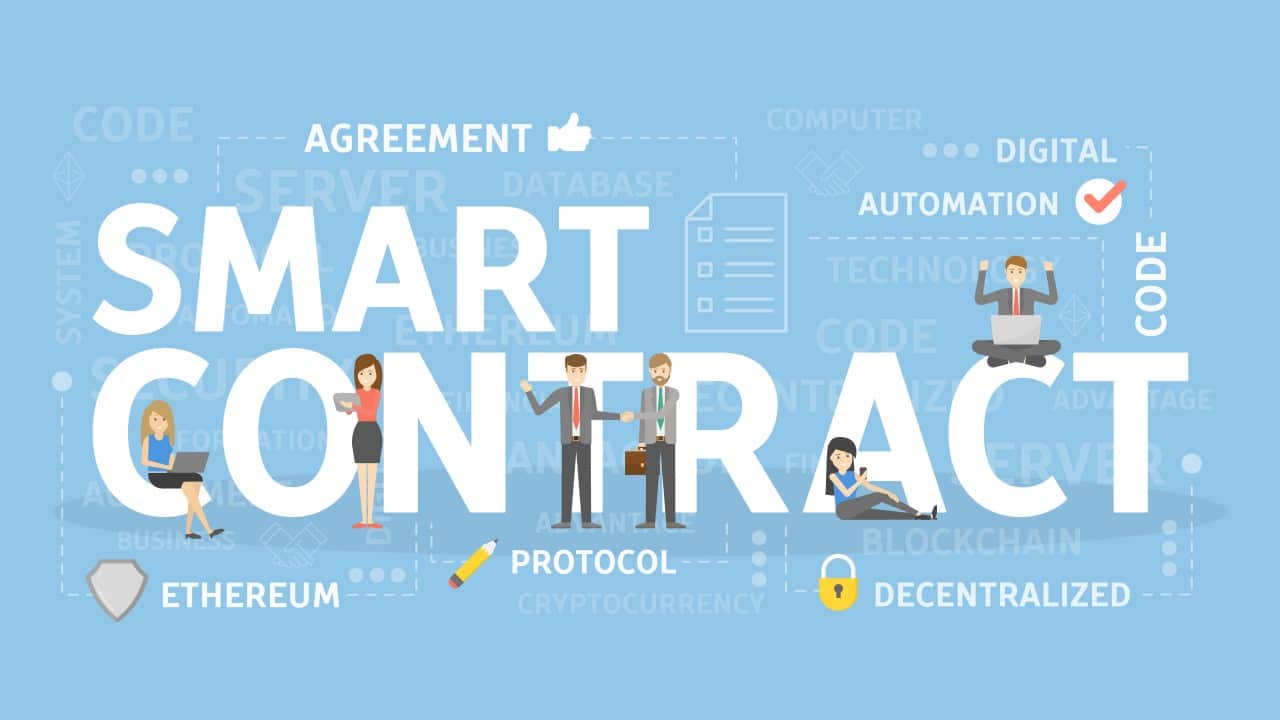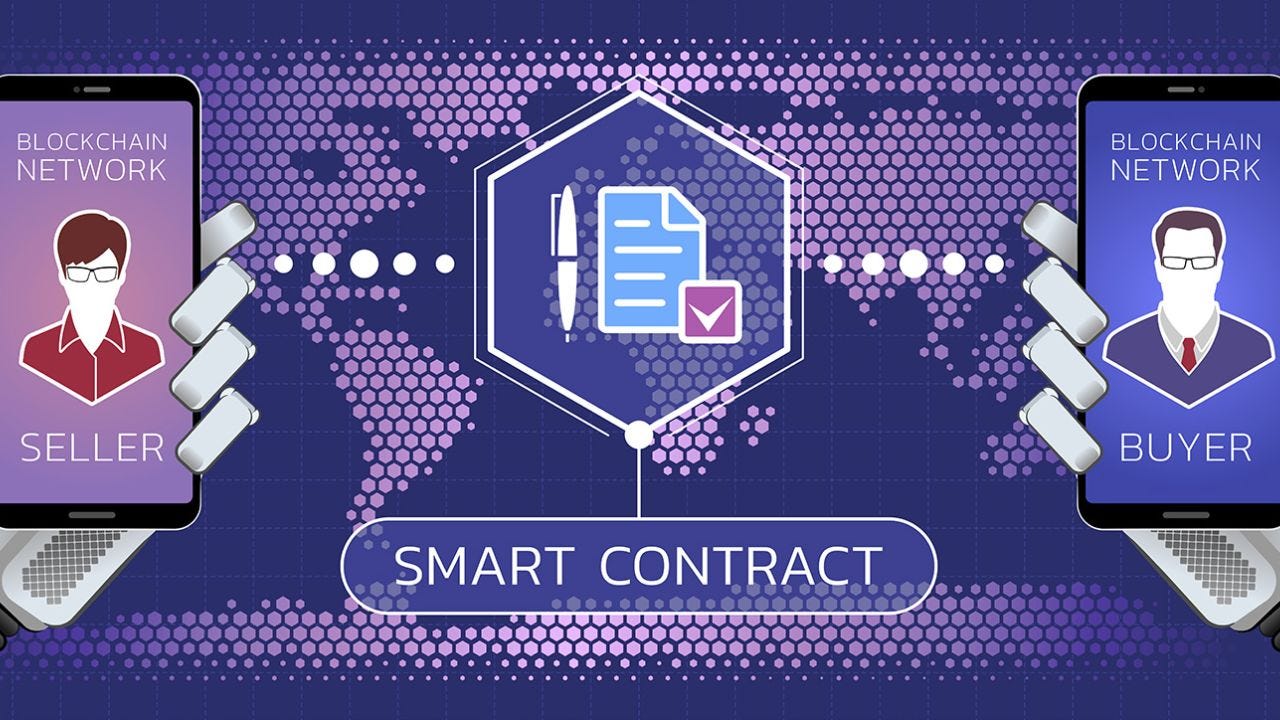In the rapidly evolving world of technology, only a select few innovations have gained as much attention and excitement as blockchain. Among the many groundbreaking features of this technology, smart contracts is the one that stands out as one of the most transformative. But what exactly are smart contracts, and why are they so integral to blockchain development? Let’s dive into the fundamentals, explore their benefits, and understand their role in reshaping industries worldwide.
Understanding Smart Contracts
Smart contracts are self executing contracts. The terms of agreement in smart contracts are directly written into the code. These contracts automatically execute actions when predetermined conditions are met, eliminating the need for intermediaries. Think of them as digital equivalents of traditional contracts, but with the added benefits of automation, security, and transparency.
The concept of smart contracts isn’t entirely new. Nick Szabo, a computer scientist and cryptographer, introduced the idea in the 1990s. However, the integration of smart contracts into blockchain technology brought the concept to life. Platforms like Ethereum have made them a cornerstone of blockchain development, powering decentralized applications (dApps) and enabling a host of innovative use cases.
Smart contracts’ relevance extends beyond tech-savvy developers. They are reshaping industries, enabling a level of automation and trust that traditional systems can’t easily achieve.
How Do Smart Contracts Work?
Smart contracts function on blockchain networks, which act as decentralized and immutable ledgers. Here’s a simplified breakdown of their working process:
- Coding the Contract: Developers write the smart contract using programming languages like Solidity (for Ethereum) or Rust (for Solana). The contract specifies the terms and conditions of the agreement.
- Deploying on Blockchain: Once coded, the contract is deployed onto a blockchain network. This deployment makes the contract immutable, meaning it cannot be altered.
- Triggering Execution: When specific conditions are met, such as receiving a payment or verifying a user’s identity, the contract automatically executes the predefined actions.
- Recording the Outcome: The blockchain records every action taken by the smart contract, ensuring transparency and traceability.
This automation not only reduces human error but also increases efficiency by cutting out intermediaries like lawyers or brokers.
To illustrate, imagine a crowdfunding campaign. A smart contract could ensure funds are only released to a project creator once a specific funding goal is reached. If the goal isn’t met, the contract automatically refunds contributors. This eliminates disputes and ensures fairness.
The Key Features of Smart Contracts
Smart contracts have fast become a cornerstone of blockchain development due to their unique features:
-
Automation
Smart contracts execute predefined actions without human intervention, reducing delays and improving efficiency. Let’s take supply chain management as an example. In supply chain management, payments can be automatically released to a supplier using smart contracts once goods are delivered and verified.
-
Transparency
Every action taken by a smart contract is recorded on the blockchain, making the process transparent and verifiable. This builds trust among participants, especially in industries like finance and real estate.
-
Security
Blockchain’s decentralized nature makes smart contracts resistant to tampering. Once deployed, they cannot be altered, ensuring that the agreed-upon terms remain intact.
-
Cost-Effectiveness
By eliminating intermediaries and automating processes, smart contracts reduce administrative costs. This makes them an attractive solution for businesses looking to optimize operations.
-
Accuracy
Smart contracts are programmed with precision, minimizing errors that can occur in manual processes. This level of accuracy is critical in sectors like healthcare and insurance.
These features not only highlight the technical prowess of smart contracts but also demonstrate their practicality in solving real-world problems.
Real World Applications of Smart Contracts
Smart contracts have transcended theoretical discussions and are now driving real-world innovation across various sectors. Here are some notable applications:
-
Financial Services
In decentralized finance (DeFi), smart contracts power lending, borrowing, and trading platforms without traditional banks. For instance, platforms like Aave and Uniswap use smart contracts to facilitate peer-to-peer transactions securely and transparently.
DeFi platforms have seen exponential growth, with the total value locked (TVL) in DeFi protocols exceeding $200 billion in 2022. This showcases the trust and adoption smart contracts have garnered in the financial ecosystem.
-
Supply Chain Management
Smart contracts streamline supply chains by automating tasks like payment release and shipment tracking. IBM’s Food Trust platform uses blockchain and smart contracts to ensure food safety and traceability, reducing delays and fraud.
For example, Walmart tracks the origin of its fresh produce using blockchain technology. A smart contract ensures payments are made once suppliers meet quality and delivery standards, enhancing efficiency and reducing disputes.
-
Real Estate
Buying and selling property involves complex paperwork and intermediaries. Smart contracts simplify this process by automating title transfers and payments. Platforms like Propy are already leveraging this technology to make real estate transactions more efficient.
By eliminating manual documentation, real estate deals can close in days rather than weeks, saving time and money for buyers and sellers alike.
-
Healthcare
In healthcare, smart contracts can manage patient data, ensuring it is securely shared among authorized parties. They also automate insurance claims processing, reducing delays and administrative overhead.
For instance, a health insurer could use a smart contract to automatically process claims once a hospital submits the required documentation. This helps reduce the risk of any errors and makes sure that patients receive reimbursements promptly.
-
Gaming and NFTs
The gaming industry is embracing smart contracts to power in-game assets and transactions. Non-fungible tokens (NFTs), unique digital assets, rely on smart contracts to verify ownership and authenticity. Axie Infinity and OpenSea are prime examples of blockchain development in gaming and digital collectibles.
NFT sales reached $25 billion in 2021, highlighting the massive potential of smart contracts in creating and managing digital assets.
Benefits of Smart Contracts in Blockchain Development

The integration of smart contracts into blockchain development offers numerous advantages, making them indispensable for developers and businesses alike:
-
Boost Efficiency
By automating tasks, smart contracts reduce the time required to complete transactions and processes. This is especially beneficial for industries where speed is critical, such as finance and logistics.
-
Improved Security
Smart contracts inherit blockchain’s robust security features, ensuring data integrity and protecting against cyberattacks. This makes them ideal for handling sensitive information like financial records or medical data.
-
Lower Costs
Removing intermediaries and automating operations significantly reduces costs. Businesses can allocate these savings to other areas, such as innovation and customer service.
-
Global Reach
Smart contracts operate on decentralized networks, enabling global transactions without the need for local intermediaries. This opens up new markets and opportunities for businesses.
-
Trust and Transparency
The transparency offered by blockchain builds trust among participants. Users can verify every transaction, ensuring accountability and fairness.
These benefits make smart contracts an essential tool for any organization looking to harness the power of blockchain development.
Challenges and Limitations of Smart Contracts
Despite their numerous benefits, smart contracts are not without challenges. Addressing these issues is crucial for their widespread adoption:
-
Coding Errors
The reliability of the smart contracts depends on the code they are built on. Any type of bugs or issues in the code can lead to significant monetary and data losses. For example, the 2016 DAO hack resulted in a loss of $60 million due to a coding flaw.
-
Legal Recognition
While smart contracts are gaining traction, they often lack clear legal recognition in many jurisdictions. Resolving disputes involving smart contracts can be complex.
-
Scalability
Blockchain networks can face scalability issues, particularly when handling a high volume of transactions. This can impact the performance of smart contracts.
-
Integration with Legacy Systems
Businesses may struggle to integrate smart contracts with existing systems and processes, requiring significant investment in blockchain development.
Overcoming these challenges requires effective collaboration between developers, regulators, and industry leaders.
What Does The Future Hold of Smart Contracts in Blockchain Development?
As blockchain technology keeps on evolving, so too will the capabilities of smart contracts. Emerging trends like multi-chain compatibility, privacy-focused contracts, and AI integration are set to redefine their functionality.
-
Multi Chain Compatibility
In the future, smart contracts will likely operate seamlessly across multiple blockchain networks. This interoperability will enhance their utility and broaden their applications.
-
Privacy Enhancements
Developments in zero-knowledge proofs and privacy-focused blockchains will make smart contracts more secure, protecting sensitive data while maintaining transparency.
-
AI Driven Smart Contracts
Integrating artificial intelligence with smart contracts could enable more dynamic and adaptive agreements. For example, contracts could analyze external data and adjust terms accordingly, making them more versatile.
The possibilities are vast, and the potential impact of these advancements is enormous.
Why Are Smart Contracts Integral to Blockchain Development?
Smart contracts represent a shift in how agreements are created and executed. Their ability to automate processes, improve security, and reduce costs makes them a cornerstone of blockchain development. As industries increasingly adopt blockchain technology, the demand for robust and innovative smart contracts will only grow.
Whether you’re a developer exploring blockchain development or a business looking to optimize operations, understanding and leveraging smart contracts can provide a significant competitive advantage. By addressing current challenges and embracing future trends, smart contracts have the potential to revolutionize multiple industries and redefine the way we conduct transactions in the digital age.




